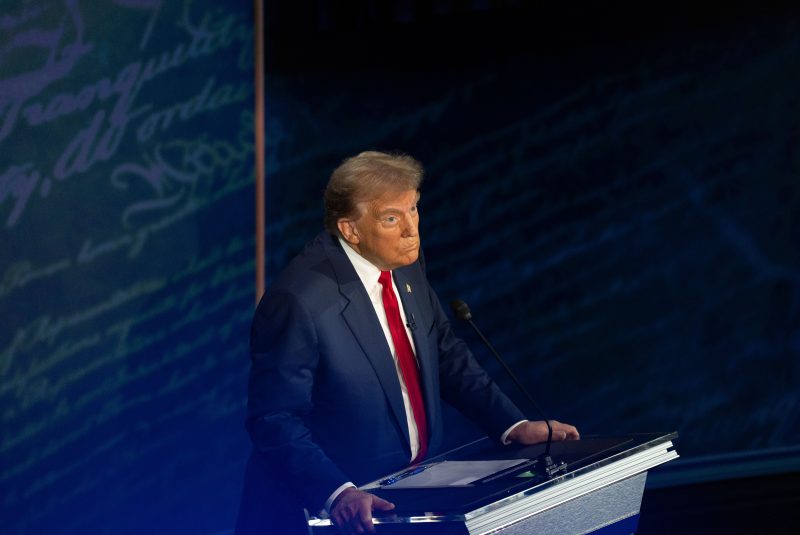Donald Trump Goes to War Against Real-Time Fact-Checks
In the world of politics, the ability to fact-check statements in real-time has become an essential tool for holding public figures accountable. However, as technology continues to advance, so too do the methods by which politicians seek to control the narrative. One such example is former President Donald Trump, who has embarked on a campaign against real-time fact-checking in an effort to regain control of his public image.
Trump’s war against real-time fact-checking stems from his belief that these checks are biased and designed to undermine his credibility. Throughout his time in office and beyond, Trump has consistently clashed with fact-checkers, dismissing their assessments as fake news and biased reporting. By challenging the validity of real-time fact-checks, Trump seeks to create a narrative in which his version of events is the only truth.
The rise of social media platforms as primary outlets for news consumption has further complicated the issue of real-time fact-checking. With the instantaneous spread of information and the prevalence of misinformation online, fact-checking has become an invaluable tool for distinguishing between truth and falsehood. However, Trump’s efforts to discredit fact-checkers have muddied the waters, making it increasingly difficult for the public to discern the truth from political spin.
One of the key tactics employed by Trump in his war against real-time fact-checking is the promotion of alternative sources of information. By encouraging his supporters to distrust mainstream fact-checkers and instead rely on sources that align with his narrative, Trump effectively solidifies his base and reinforces his version of events. This deliberate seeding of doubt serves to create a climate of confusion and division, in which the truth becomes elusive and subjective.
Additionally, Trump has weaponized his social media presence to bypass traditional fact-checking measures and disseminate his message directly to his followers. By leveraging his large and devoted following on platforms such as Twitter and Facebook, Trump is able to amplify his voice and control the narrative without the interference of fact-checkers. This unchecked spread of potentially false information poses a significant threat to the integrity of public discourse and democratic processes.
In response to Trump’s campaign against real-time fact-checking, proponents of accountability have emphasized the importance of transparency and evidence-based reporting. Fact-checkers continue to play a crucial role in holding public figures accountable for their statements and actions, ensuring that the public is armed with accurate information. Efforts to combat misinformation and disinformation must be redoubled in the face of escalating attacks on truth and accountability.
As the debate over real-time fact-checking rages on, it is clear that the integrity of information in the public sphere hangs in the balance. Donald Trump’s war against fact-checking represents a dangerous trend towards the manipulation of truth for political gain. In order to safeguard the principles of honesty and transparency, it is imperative that the public remain vigilant in questioning sources of information and holding politicians accountable for their claims.

